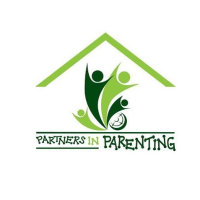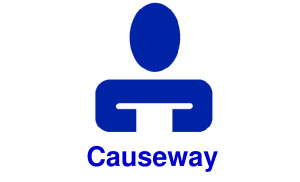These success stories profile member organizations who are demonstrating accessible recruitment and retention policies and practices. Their combined efforts result in increased employment opportunities for people with disabilities and showcase inclusive workplaces that value diverse talent.
Smart Employment Strategies
The following story exemplifies how two members of the EARN network (Enterprise and Performance Plus Rehabilitative Care Inc.) worked together to achieve the right job match for a person with disabilities.
Ahmed Abdi-Salah, Branch Rental Manager for Enterprise Rentals in Kanata, believes in hiring people who can do the job and contribute to the success of the business. He also believes in looking for talent where others do not. Ahmed saw a valuable employee when he hired Nicholas Wojtas and gave him the opportunity to prove himself at Enterprise.
Over the past nine months, Nicholas has proven himself, working as a Service Agent to detail vehicles when they are returned. Nicholas loves his job and the people he works with. “It is a nice fit,” Nicholas says. “The people are wonderful and have given me the opportunity to gain confidence and contribute to the company.”
“Nicholas is a positive and reliable worker,” says Ahmed. “He lifts the atmosphere whenever he is at work. You can really tell when Nicholas has done the job – he catches the little things that stand out for us and the customers.”
Nicholas found his employment by working with Joël Dazé, a Counsellor with. Performance Plus Rehabilitative Care Inc. (PPRC). Joël helped Nicholas prepare for employment and assisted him in finding the job at Enterprise. PPRC helps persons with disabilities return to work by matching their interests with employment opportunities.
PPRC is an approved service provider for the Ontario Disability Support Program (ODSP), which offers placement services to employers at no cost to them. PPRC partners with Eastern Ontario employers to help them become more inclusive in their employment practices. Employers cannot afford to overlook this talent pool, if they want to remain competitive, grow their business and gain market share.
This story first appeared in the winter 2017 edition of Ottawa Family Living magazine. Thank you to Linda Simpson of PPRC for submitting it as an EARN success story.
To find out more about Enterprise Holdings: https://careers.enterprise.com/
To find out more about PPRC: www.pprc.ca
Training that Leads to Employment
People with intellectual disabilities have career goals just like anyone else; yet they face tough barriers to finding a job. Partner in Parenting’s Beth Butland, Employment Advisor, recounts how the Algonquin College Kitchen Steward Program helped overcome barriers for some of her students. Recently 7 of them completed the course and, less than 2 months after graduating, 3 were offered employment.
As Beth reported: “I applied for training funds through the Opportunities Fund for People with Disabilities and was successful in securing over $ 45,000 for 7 students of ours to attend the Algonquin College Kitchen Steward Job Readiness program. It was a 15-week in-class training at Algonquin followed by a 12-week on-the-job placement which completed at the end of November 2017.
This program had an adapted curriculum for people with disabilities, however it was a very comprehensive course complete with knife skills chopping and cutting for meal prep, running a commercial dishwasher, and cleaning/sanitation methods. They also received WHMIS, Food Safe, and First Aid training. This course is meant to help people find entry level jobs in the food services sector. All 7 students who started completed the program.”
In January 2018 Beth gave an update that 2 graduates had found part-time employment and a third will be starting seasonal work in May. Congratulations to the students and to all those involved in this innovative initiative!
Partners in Parenting is an organization that offers programs and supports to people with intellectual disabilities and their families. Beth’s role as an Employment Advisor focuses on assisting students to find career training opportunities and paid employment.
For more information:
http://www.partnersinparenting.ca/day-services/life-program/
http://www.algonquincollege.com/ccol/courses/kitchen-steward-job-readiness/
Aleid Finds a Job
Like many people who come to Causeway Work Centre, Aleid was struggling to find the right job for him. Causeway’s Employment Supports Program was able to help. In his words: “Everything was so downhill [when I couldn’t find a job], but now things are looking up – Everything is changing. I feel proud to have a job”.
EARN member, Causeway, supports people with mental illness and other challenges to find rewarding work and live more independently. You can learn more about how to create mentally healthy workplaces where everyone, including those who live with mental illness can thrive, by attending EARN’s upcoming annual conference.
After years of searching for that perfect job, Aleid’s hard work and determination finally paid off when he was able to get not one, but three jobs. For a few months now, Aleid has been working at Tim Hortons in the lobby doing cleaning and maintenance, at the Ottawa Carleton Association for Persons with Developmental Disabilities (OCAPDD) maintaining the plants, and at an enterprise of OCAPDD called Hearty Tails where he is responsible for helping to make and package gourmet pet food.
Like many people who come to Causeway, Aleid was struggling to find a job that was right for him.
He began his journey in the Job Quest program where he began searching and applying to jobs online, developing his resume, and going to job fairs. Because of the nature of Causeway’s programs, Aleid was able to add more recent work experience to his resume while searching for employment by working for Good Nature Groundskeeping, a Causeway social enterprise. Despite his best efforts, he found that finding employment opportunities that worked for him was very difficult. “I went to so many interviews, but nothing was working”.
After transferring to the Employment Supports Program, he was able to get the right amount of support that he needed to find a job that he really enjoys. Even though he is now busier than ever, he often reflects on his experiences where he struggled to find a job. “Everything was so downhill [when I couldn’t find a job], but now things are looking up – Everything is changing. I feel proud to have a job”.
When asked about the future, Aleid said that he hopes to be trained at Tim Hortons to work the store front serving customers. “It’s time for me to try something new and different because when I usually get a job I’m stuck in either lobbies or parking lots”.
For those who are still struggling to find a job, Aleid’s advice is just to keep at it, because eventually it will work.
To find out more about Causeway:
Turning Barriers into Opportunities
Sisters “Rebecca” and “Katie” came to CVE Inc. to look for part-time opportunities and met with Joanne Aherne, Employment Integration Specialist. (Please note that names have been changed to respect confidentiality).
This article tells their story, and showcases some of the strategies CVE uses to support candidates with disabilities to surmount barriers to employment and achieve successful outcomes. EARN member CVE Inc. provides services to the disability community, employers, insurance providers, worker compensation boards, and government ministries.
Joanne began by creating a realistic Employment Plan for each candidate based on their interests and job goals. It was decided at the outset that the employment plans would be comprehensive, covering everything from job search to setting up meetings with employers; both plans included Joanne attending meetings as a support and/or advocate.
Joanne’s focus in developing the plans was to remove barriers to employment. One of the most important things looked at was location. In the past getting to and from a job had been a barrier. Getting off a bus and crossing the street was also a challenge. The solution: to look at employment opportunities close to home. At CVE, we examine everything that could be a barrier, work to remove barriers and turn them into opportunities.
Rebecca was interested in working part-time as a cleaner so Joanne approached small businesses in her immediate neighbourhood. One employer, a restaurant owner, agreed to meet. Joanne requested a meeting, rather than an interview, as the first step in changing the conversation, an approach we value when developing relationships with employers. Having a meeting has advantages over the traditional interview. Meetings allow the employment counsellor to gain an understanding of the employer’s talent needs while simultaneously providing an opportunity to highlight candidate skills and potential. We believe this approach allows employers to make an informed hiring decision.
Joanne disclosed that Rebecca understands what is said to her but has difficulty with expressing more than one or two words in response. Her strength is an amazing smile and her willingness to carry out job specific tasks. As a result of taking this approach, Rebecca was hired on the spot for 2 mornings of cleaning per week. Joanne continued to check in with both employee and employer to offer support. None was required.
Rebecca loved her new job, and a few months later, approached Joanne for help to find a second job. In fact, she used the first job as a stepping stone, to gain confidence, and to learn new skills. Staying close to home remained important to her because it automatically removed the barrier of transportation. Joanne found another part-time job in her neighbourhood. This time, the job was in a grocery store, counting and bagging fruit, a step up, more responsibility, and more of a learning curve.
Rebecca has remained in this second position. Joanne coached the first day and partnered with the client’s life coach. The life coach assisted on the job during the second shift. That was all that was required. Joanne still keeps in close touch with the employer, and all appears to be going well. Rebecca reports loving this job too.
Katie came to seek Joanne’s support at the same time. Katie wanted to work in retail, possibly at a mall. Using the same strategy as before, Joanne approached an employer, and once again changed the conversation by setting up a meeting, rather than an interview. This led to Katie being hired. She is now working part-time at a Value Village, near her home. She works as a floor associate, keeping areas neat and clean, helping with fitting rooms, and general recovery of items that need to be reorganized.
Joanne offered to be there for the orientation and training which required the reading of manuals and store policies, and some online training. No further coaching was required. Like Rebecca, Katie enjoys her job too.
Both these individuals are examples of people who just want to work. They needed some help to reach their goals: Joanne is proud when she sees them flourishing in their jobs.
Here are some of the strategies Joanne used to support her clients, strategies that could be applicable to other candidates who face barriers to employment:
- Create a comprehensive and realistic individually-tailored employment plan for each candidate;
- Identify barriers to employment and work not only to remove them but to find ways to turn barriers into opportunities;
- Realize that approaching employers doesn’t have to be a complicated process. It is about knowing how to talk to people, anticipating employer needs, knowing your audience and moving forward with determination;
- Consider arranging meetings with employers. The formal “interview” may not work for some candidates with disabilities; and
- Partner with other organizations to provide additional supports – this can make the difference in a successful transition to work – for example: a skilled life coach can help some employees with disabilities with daily activities and thereby increase their life skills and job competencies.
To find out more about CVE visit:
http://earn-paire.mydev.ca/service-providers/earn-service-provider-member-directory/
EARN Networking Pays Off!
The PPRC team under the leadership of founder Linda Simpson helps people with visible and non-visible disabilities to find gainful employment. Their support and expertise boosted candidate Jennie’s self-confidence and she found her first full-time job in four years within a few days, after attending an EARN networking event.
Jennie once worked as a teacher and as a project coordinator. Health issues left her in need of flexible work arrangements to deal with medical appointments. She left full-time work and took on contracts and freelance writing and editing from home. But Jennie is more of an extrovert who needs to stay engaged with other people. With her health improved she wanted to return to a full-time position. As part of her engagement with PPRC, Jennie consented to have her resume circulated among various employer partners of EARN, and with courage she decided to take part in an EARN networking event.
Louise Reid, Manager, Talent Attraction and Acquisition for Hydro Ottawa, was a featured speaker at the EARN event. Jennie liked what she heard about opportunities with Hydro Ottawa’s Customer Service group. She submitted her resume and the next day, she got a call for an interview.
“Jennie was just the right person for the position we had,” said Louise. “During my presentation, she was so interested and engaged. The timing was great and she had the right aptitude for the opportunity.”
Shortly after Jennie began a six-month full-time contract, and her contract was subsequently extended to eighteen months.
Hydro Ottawa’s on-boarding practices assist candidates like Jennie to reintegrate into full-time work. Hydro Ottawa uses these practices with all its new hires. Full briefings with the hiring manager before her first day of work, online training resources, regular orientation sessions and plenty of “elbow training” with an experienced co-worker, have all served new employees like Jennie well.
For Jennie, finding the right fit with an employer and a workplace culture was crucial. Her advice? An EARN networking event is a good place to start.
According to Jennie: “Organizations that are involved obviously believe in what EARN is doing and are strong advocates about creating opportunities for people.”
At Hydro Ottawa, diversity isn’t a buzzword, it’s a strategic priority, said Louise.
The utility, like most large organizations, is already feeling the pressure of skilled labour shortages in various areas. It has responded with a series of initiatives to expand the diversity of its workforce. One area of focus is persons with disabilities.
“Employers have to expand their lens, expand their thinking,” said Louise. “There is a richness of talent in places many often don’t think to look. EARN is a fantastic hub of matchmakers who will enthusiastically put you in touch with service providers like PPRC to find outstanding people for your team.”
Since being hired on contract, Jennie’s career has been flourishing. Here is her update:
“After two years on contract in two different positions with Hydro Ottawa (which all started from an EARN event), I was recently successful in a third job competition and am now working as the Administrative Assistant in Customer Service. I’m very happy to say that this position is full-time! Hydro Ottawa continues to utilize my varied skill set and focuses on my strengths and abilities.
I would also add that I am now on Hydro Ottawa’s Accessibility Committee which is providing me with a wonderful opportunity to help champion disability-related work issues.”










